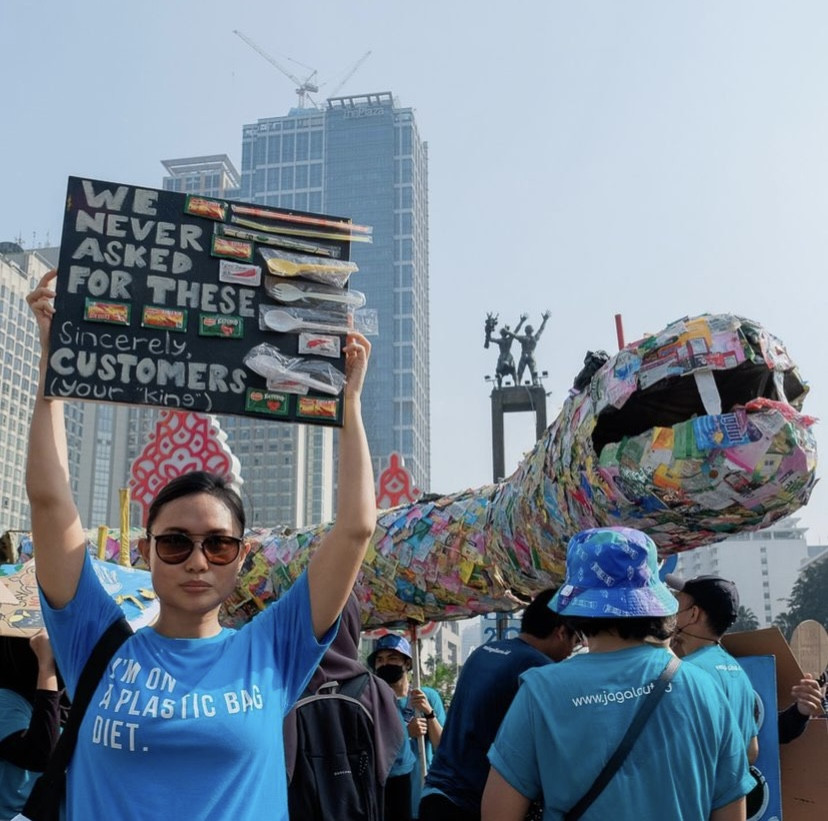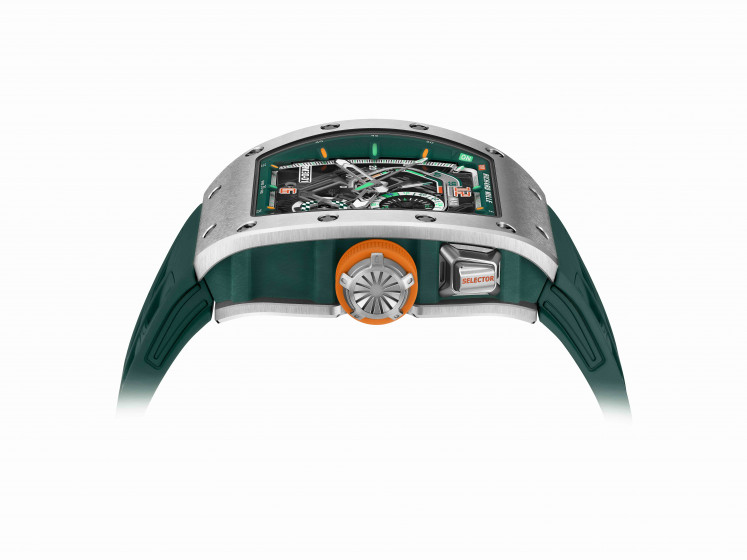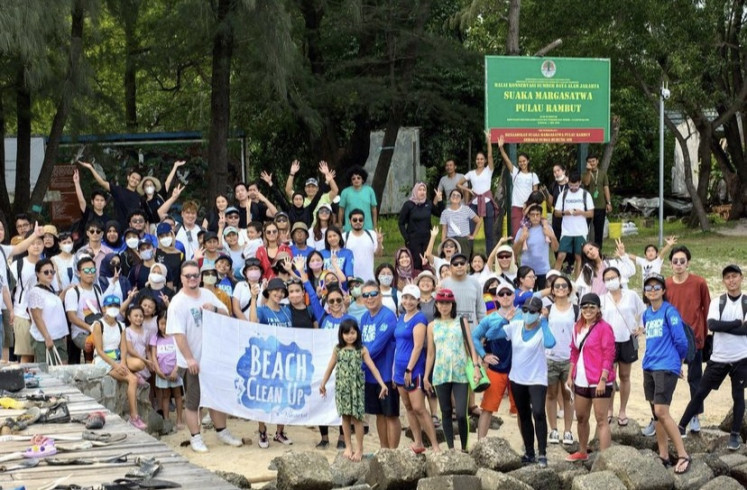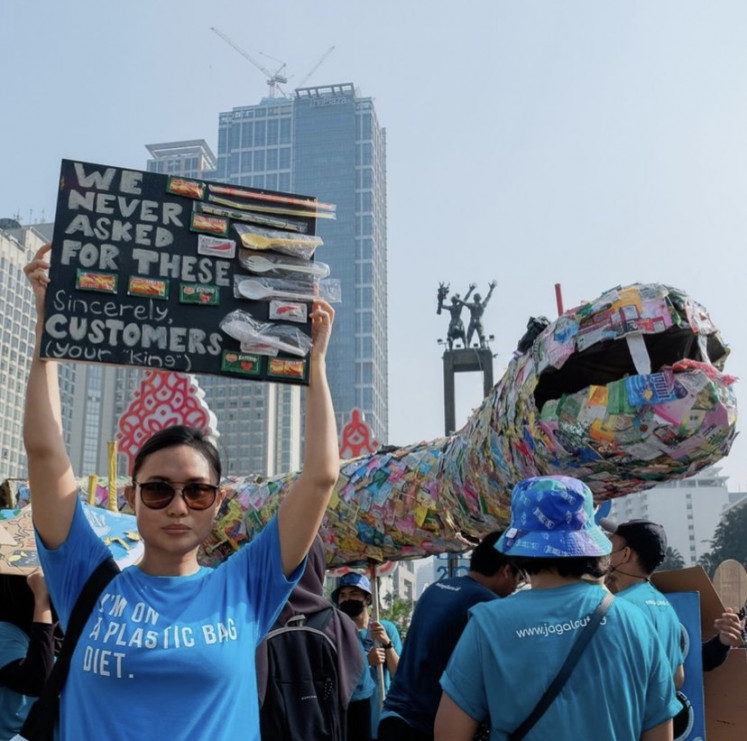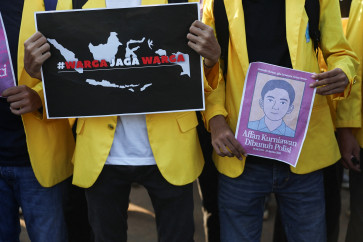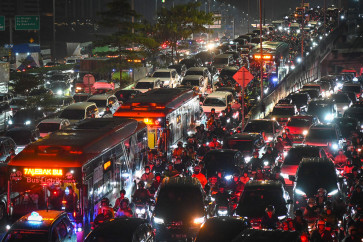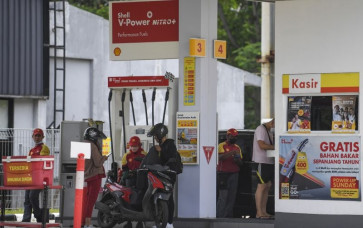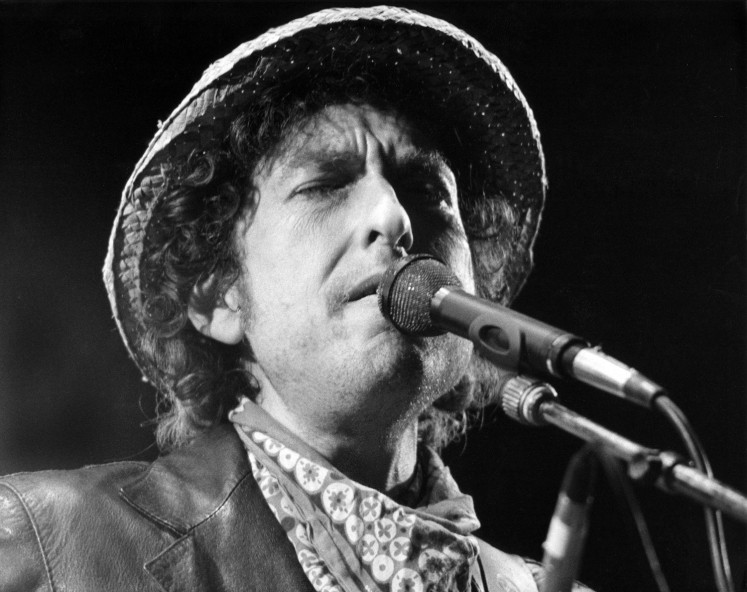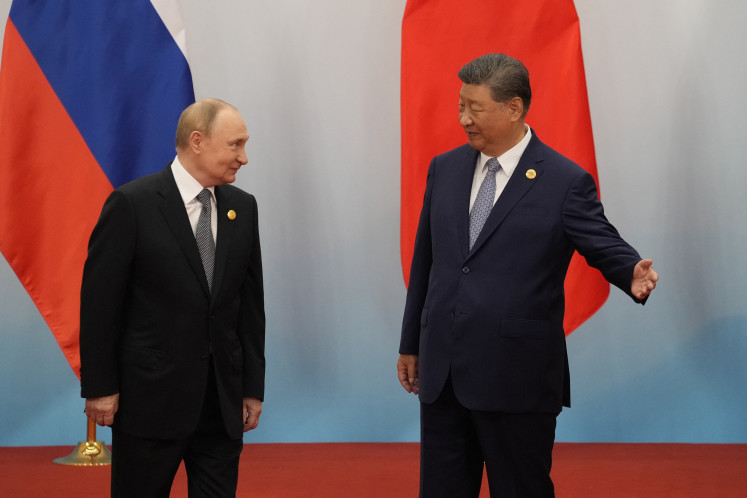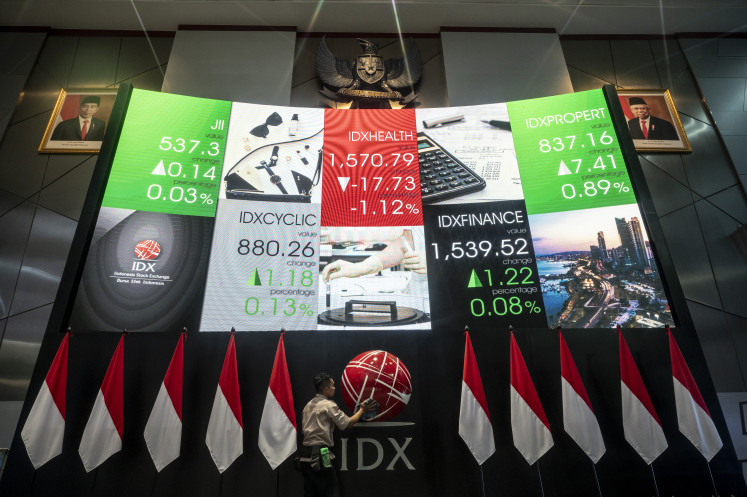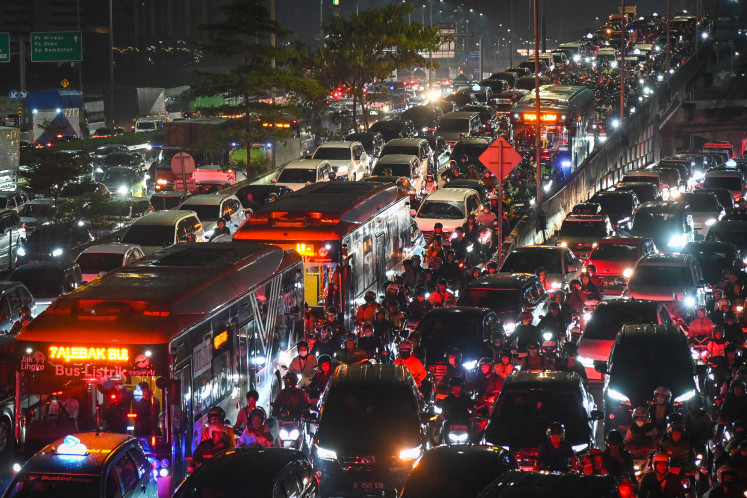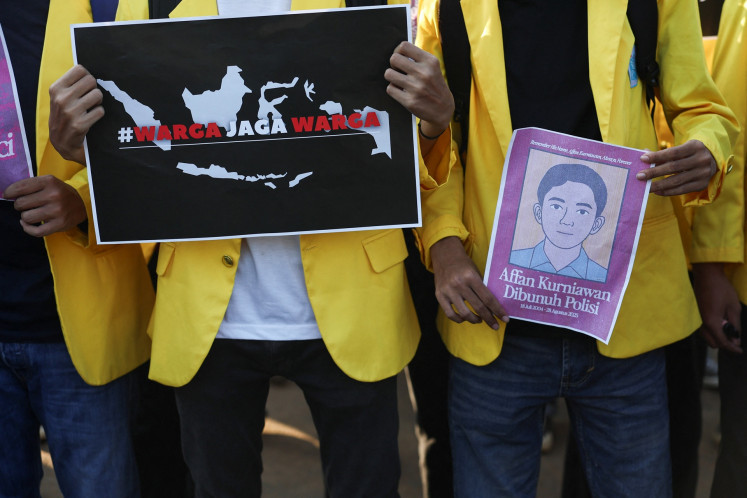Popular Reads
Top Results
Can't find what you're looking for?
View all search resultsPopular Reads
Top Results
Can't find what you're looking for?
View all search resultsWhat I’ve learned: Activist Tiza Mafira
Tiza Mafira is the star of Pulau Plastik (Plastic Island), a documentary on plastic pollution. The lawyer and mother of two shared what she learned from more than two decades of fighting to save our planet.
Change text size
Gift Premium Articles
to Anyone
‘What I’ve learned’ is a new column that presents candid interviews with policymakers, artists, activists and businesspeople on facing challenges and making a difference.
Tiza Mafira is the star of Pulau Plastik (Plastic Island), a documentary on plastic pollution, and is one of Indonesia’s leading environmental activists and the driving force behind some of the country’s most consequential policies on single-use plastics.
The lawyer and mother of two shared what she learned from more than two decades of fighting to save our planet. The following are excerpts from the interview.
I haven't seen myself on Netflix. I saw the movie in the theaters twice, but never on Netflix. I got recognized once in Bali. I was walking down the street and this woman swerved and stopped on her motorbike in front of me and asked, “Excuse me, excuse me. Are you Tiza Mafira, from Pulau Plastik?” I was frozen. I probably came off as rude. But it was the first time I had ever been recognized. And I was so shocked.
The plastic crisis is the climate crisis. They’re all intertwined.
Social behavior is shaped either by corporate marketing or policy. And I don’t want to change the world through corporate marketing, so I am going to change it through policy.
Once we got the plastic bag bans out in Jakarta, there was 80 percent compliance. Everyone came to the supermarket one day and you couldn’t get a plastic bag anymore. They didn’t have a choice. And guess what, nobody died.
My kids push back a little. Whenever we go to the supermarket, they want Kinder Joy. But I won’t buy it because it’s plastic. And when we go out to dinner, sometimes the drinks come to the table with the straws already in them and my 7-year old rolls her eyes and says, “Yes, I know […] we’re killing the turtles.”
But she also says stuff like, “Mommy, I like your job […]. You’re saving the world.”
There are a million things I could list. Don’t use single-use plastic, take the bus, don’t buy into fast fashion, but none of them is going to change the system unless everyone taps into the set of skills they already have.
Collective effort: Tiza Mafira organized a beach clean-up with non-profit organizations Beach Clean Up Jakarta and Diet Kantong Plastik in August. (Instagram/Tiza Mafira) (Instagram/Tiza Mafira)People always ask what they can do to save the planet and I always say the same thing: Identify what you’re good at and use that to save the planet. I don’t want to give people an easy way out. Because we could all be doing more. If you’re a lawyer, use those skills to help the planet. Same thing if you are an accountant, use those skills.
You have to have the courage to tell the truth.
People don’t care as much about the future as we think. Despite our lively imaginations and our intellect, we aren't able to think about our immediate future. Because money gives us the immediate things that we need in life. Because the things required to save the environment now won’t give us immediate results. We are killing the planet.
It doesn’t stop with the movie. The movie is just a tool toward a bigger scope of campaigns. We have bigger goals.
In terms of activism the hard road is upstream policy work. The world that doesn't get seen is the boring stuff. The technical assistance to the government, all the documents that get drafted, all the emails that get sent.
Downstream community movement gives pressure for the upstream policy to change. You can’t separate them. Both have risks. You have to do both. If you are only downstream, nothing will change upstream.
I came into this work thinking what a lot of people think, which is if you want the world to change people need to be making profit in order to change. I was a corporate lawyer. I tried to help companies who said they were going to be sustainable or make money out of being green.
We don’t do beach clean-ups. We do brand audits. It’s a network of communities who pick up litter on the beach and we list what brand it is. The top 3 polluters are always Coke and Pepsi and other beverage companies.
Fight against plastic: Tiza Mafira attends the Pawai Bebas Plastik (Plastic Free March) in Jakarta in July. (Instagram/Tiza Mafira) (Instagram/Tiza Mafira)Isn’t it sad that we are littering the world in the name of empty calories?
There's a thing called “plastic credit”. All the fast-moving consumer goods companies can pay to get the plastic cleaned off the beaches. You pick it up and weigh it and they pay you. They are paying you to pick up their plastic. You pick it up and a plastics-producing company will pay for it. And they get to claim that they’ve reduced plastic.
Maybe 16-year-old me would have believed in stuff like plastic credit. Current me knows this doesn't solve the root of the problem. Companies should be thinking, “What can we do to prevent our products from ending up on the beach in the first place.”
The root of the problem is that you are producing and effectively marketing something nobody needs, and you are littering the world in the process. Policymakers and companies tend to blame the consumer, but I don’t think the consumer is the problem.
How is it that we can blame coastal communities whose beaches are littered with plastic? There are all these communities upcycling, making handmade crafts out of sachets. But every day there is more and more plastic produced. It won't end.
I’m not discouraging people from changing. I want people to know they matter. And I want them to realize they can change the system, not just themselves.
People aren’t treating this with the urgency needed. We don’t have 30 years. I am being asked about the plastic crisis. But this is a climate crisis. Plastic is embedded in the climate crisis. This is a real issue. If we keep the petrochemistry running they are going to need oil and gas and all of the emissions from that is going to contribute to the climate crisis. The more we churn out products we don’t need, the more we are contributing to the climate crisis.
There’s a problem with capitalism in general. They’re asking you to consume more than what you need.
Buy only what you need. But more importantly, you need to understand what it is you need. People today are decoupled now from understanding what it is they need and what it is they want.
Humans are really bad at differentiating from what they really need. Animals are great at it.
We are intelligent enough to understand marketing, but not smart enough to understand and see what is behind marketing. We think in order to survive this depression, I need retail therapy.
If you’ve stopped buying fast fashion, for example, you need to talk about it. It’s rare for people to take that stand, so you should talk about it. In order to change the system. You need to change and you need to take a stand. But you need to be vocal about taking a stand. There is accountability in being vocal.
I don’t want to change people. I want to change the system in which they live.
Some people will care about the environment and some won’t. For me the goal is to build a system that makes change convenient to all people, whether they care or not.

